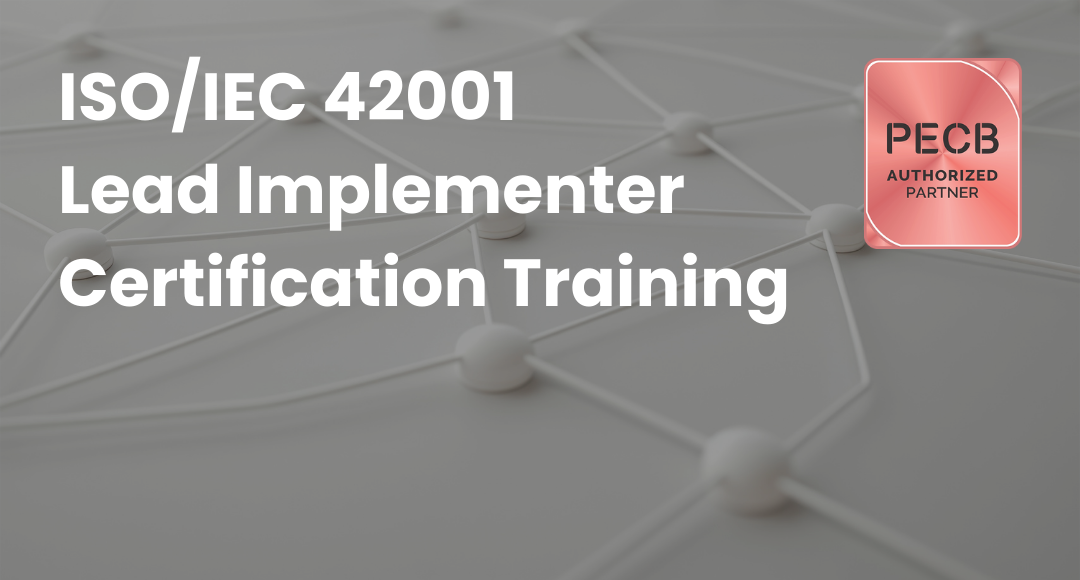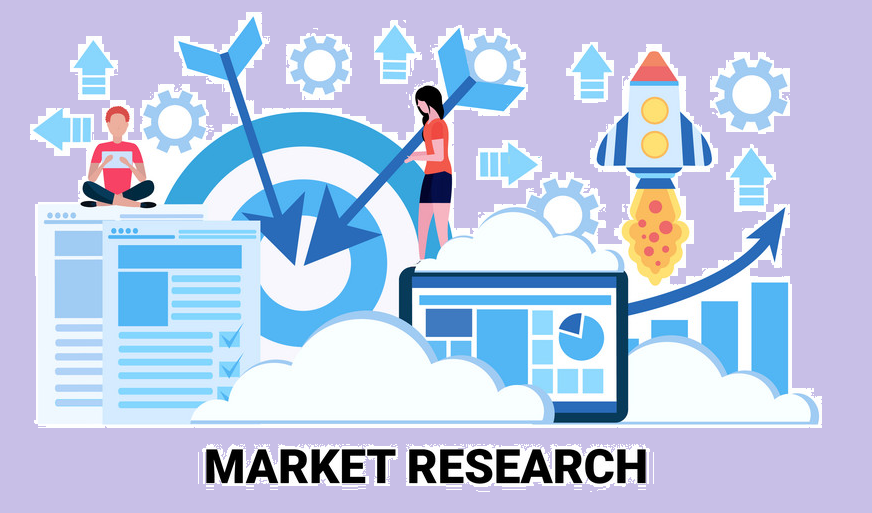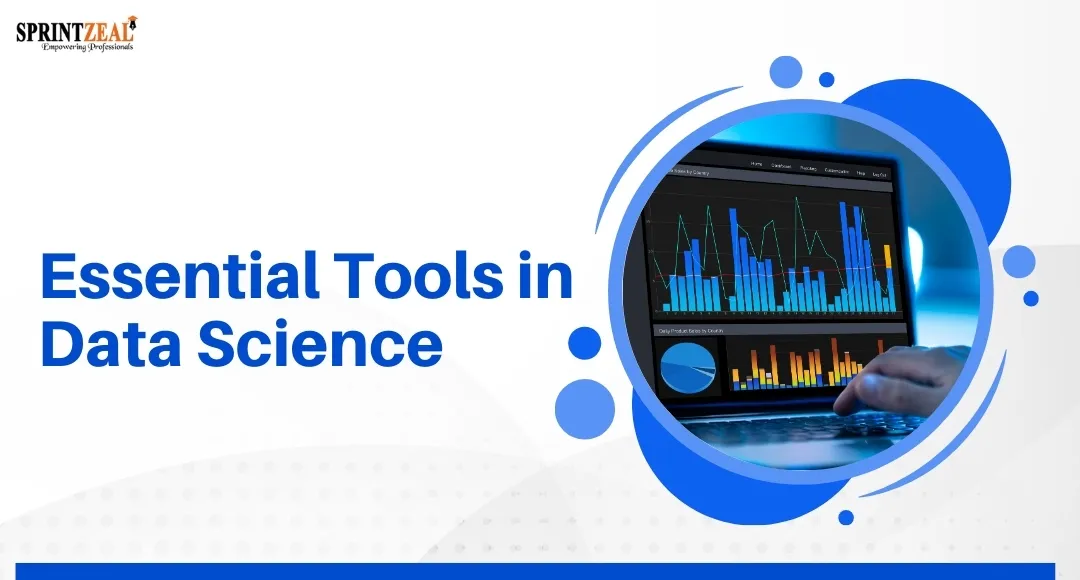Artificial Intelligence Career Guide: Become an AI Expert
-
 By Niharika Chaurasia
By Niharika Chaurasia
- Published on Jan 29 2024

Table of Contents
Introduction
The Future of Artificial Intelligence Career is very promising and demanding, as more and more businesses are incorporating artificial intelligence into their products.
Artificial intelligence (AI) is the creation of a computer, machine, or robot that can think like a human brain and mimic its actions.
In simple words, the ability of a system or machine to replicate human intelligence is simulated by training the systems to engage in cognitive behaviors such as thinking, learning, and decision-making.
Examples of artificial intelligence include:
- Google search algorithms
- Recommendation systems
- Self-driven automobiles
- Autonomous weapons
-Smart assistants like Siri and Alexa
- Chabot
- Robotic vacuum cleaners
- Self-driving vehicles
- Facial recognition software

The examples above are just a few of the many AI applications that exist. The demand for skilled, experienced AI professionals is growing because of the day-by-day advancement of technology.
Because of the increasing demand for digitally transformed industries, career opportunities in artificial intelligence have grown exponentially in recent years.
How to Start a Career in Artificial Intelligence?
Jobs in artificial intelligence are in high demand, and this field is expanding fast, thanks to new technical developments.
Starting a career as an artificial intelligence expert requires research about the fields of AI to get the desired job. This also helps the professionals tailor their education and build the skills required for the position.
It is important to conduct research, which includes speaking to AI professionals working in this field. Researching reputable colleges and AI-related courses or programs that offer needed degrees.

To begin with an artificial intelligence career, a bachelor’s degree in math and basic computer technology is required.
Consider getting an advanced degree in artificial intelligence if you want to set yourself apart from other applicants.
What are the Professional AI Skills in Demand for 2026?

Essential skills for Artificial Intelligence job
Education
-The educational requirements lay the groundwork for an artificial intelligence career.
-A bachelor's or master’s degree or any certification course in IT and computer science, statistics, and data science
Technical
It is critical to understand the exact technical skills required to begin an artificial intelligence career; this allows aspirants to be in the right place with the right skills.
-General-purpose languages: Python and C/C++
-Database management: Apache Cassandra, Couchbase, DynamoDB
-Data analysis and statistics: MATLAB, R, Pandas
-AI platforms: Microsoft Azure AI, Google Cloud AI, IBM Watson
-Data acquisition systems: Physical sensors and wireless sensors
-Digital marketing goals and strategies
-Industry knowledge
Non-technical
The Artificial intelligence career demands some non-technical skills, which are workplace skills that are not part of a course or training. They come with experience. These are human skills, which include:
-Communication skills
-Effective collaboration
-Analytical skills
-Problem-solving skills
-Management and leadership skills
These skills help AI professionals deal with stakeholders to convey the results and findings and ensure success.
10 Best Career Paths in Artificial Intelligence
In recent years, the demand for technologies like machine learning and artificial intelligence has increased. Many organizations prefer professionals who have knowledge and hands-on experience with these growing technologies.
Hence, Artificial Intelligence career is the most preferred option for fresher’s as well as for professionals who are already working in the IT field.
Sprintzeal's AI and Machine Learning Masters Program training covers hands-on projects, practicals, and access to hackathons; learning is accessible to Python, Keras, Django, Tensor Flow, Flask, Amazon Sage Maker, NLTK, Alexa, OpenAI Gycts.
Below are the job roles of an artificial intelligence expert, which also include some positions that work closely with those in AI roles.
Robotics Engineer
The Robotic engineers' design, build and test robots or robotic systems.
Designing Robots: Create and develop robotic systems, including the physical structure, electronic parts, and computer programs that make them work.
Writing Code: Use programming languages like C++, Python, or Java to code and control the movements and actions of robots.
Sensors and Perception: Integrate sensors like cameras and radar to help robots understand and interact with their surroundings.
Control Systems: Develop systems that guide and regulate how robots move and perform tasks.
Testing and Fixing Issues: Test robots thoroughly to ensure they work well and troubleshoot any problems that come up during development.
User Experience (UX) Designer/Developer
The user experience designer and developer help customers understand and use the product easily. Their main role is to understand how people use equipment and how computer scientists can apply that understanding to develop more advanced software.
Designing User-Friendly Interfaces: Craft intuitive and visually appealing digital interfaces that enhance user experience.
User Research: Conduct research to understand user needs and preferences, informing design decisions.
Wireframing and Prototyping: Create wireframes and prototypes to visualize and test design concepts before implementation.
Collaboration with Teams: Work closely with developers, product managers, and other stakeholders to ensure cohesive and effective design implementation.
Usability Testing: Evaluate designs through usability testing to identify and address potential user issues.
Natural Language Processing Engineer
The role of a Natural Language Processing Engineer is to discover the connection between human language and computational systems; this includes working on projects like chatbots and virtual assistants.
Algorithm Development: Create algorithms that enable computers to understand and respond to human language.
Data Processing: Work with large sets of language data, cleaning and organizing it for analysis.
Programming Skills: Use programming languages like Python to build and implement language processing systems.
Text Analysis: Develop systems that can analyze and interpret written or spoken language for various applications.
Machine Learning Integration: Integrate machine learning techniques to enhance the ability of systems to understand and generate human-like language.
Researcher
- The researcher works in computer science and AI research.
- They discover different ways to advance AI technology.
Research Scientist
- The profile requires experts in applied math, machine learning, deep learning, and computational statistics.
- The research scientist should have an advanced degree in computer science or an advanced degree in a related field supported by experience.
Big Data Analyst
Their work is to find meaningful patterns in data by looking at the past to help make predictions about the future.
Data Analysis: Analyze large sets of data to extract valuable insights and trends.
Database Management: Manage and organize extensive databases efficiently.
Statistical Analysis: Apply statistical methods to interpret and present data findings.
Data Visualization: Create clear and informative visual representations of complex data.
Tool Proficiency: Utilize tools like Excel, SQL, and data visualization software for analysis.
Problem Solving: Identify patterns and trends to solve business challenges through data.
AI Engineer
AI engineers build AI models from scratch and help product managers and stakeholders understand the results.
- Design and Build AI Systems: Create and develop artificial intelligence (AI) systems, focusing on both the software and hardware aspects.
- Coding and Programming: Write code to make AI systems work. Use languages like Python or Java to program and control AI functionalities.
- Data Understanding: Make sure AI systems can understand and use data effectively. This involves figuring out how to get valuable information from different sources.
Data Mining and Analysis
Data Mining: Uncover valuable patterns, trends, and insights from large datasets using advanced computational techniques.
Analysis: Evaluate and interpret data to extract meaningful information, aiding in informed decision-making and strategic planning.
Pattern Recognition: Identify recurring patterns and relationships within data, enabling predictions and optimization.
Database Exploration: Dig into extensive databases to discover hidden knowledge and generate actionable insights.
Machine Learning Engineer
The role of Machine learning engineers includes using data to design, build, and manage machine learning software applications.
Algorithm Development: Create and refine algorithms that help computers learn and make decisions without explicit programming.
Data Processing: Handle and process large data sets to train machine learning models effectively.
Programming Skills: Utilize programming languages like Python or R to implement and optimize machine learning algorithms.
Model Evaluation: Assess the performance of machine learning models through testing and validation processes.
Software Engineer
The role of a software engineer is to develop programs in which AI tools function. The role may also be referred to as a Programmer or Artificial Intelligence Developer.
Coding and Programming: Write and create computer programs using languages like Java, Python, or C++. Develop software applications and systems.
Problem Solving: Identify and solve technical problems in software development. Debug and troubleshoot issues to ensure smooth operation.
Software Design: Plan and design the structure and functionality of software. Create blueprints for how programs will work.
Testing and Quality Assurance: Test software to find and fix errors. Ensure that software meets quality standards before it's released.
Takeaway
In the last few years, the field of artificial intelligence has been rapidly growing. As a result, the artificial intelligence career is currently popular, and its demand will skyrocket in the future as technology advances.
Master the skills of artificial intelligence and be ready to achieve unmatched targets. The immensely increasing amount of data and need for data analytics provide extensive opportunities to build a career in artificial intelligence.
To learn more about artificial intelligence and master the skills to boost your career,
Enroll in Sprintzeal’s AI and Machine Learning Masters Program.
Do visit Sprintzeal’s all-courses page and explore more courses that suit your preferences.
Read more blogs on the subject.
7 Amazing Facts About Artificial Intelligence
How Artificial Intelligence Has Made Understanding Consumer Buying Behavior Easy in 2026
Popular Programs
Artificial Intelligence Certified Executive (AICE) AI3090
Live Virtual Training
- 5 (650 + Ratings)
- 14k + Learners
Artificial Intelligence Foundation (AIF) AI3010
Live Virtual Training
- 4.3 (650 + Ratings)
- 72k + Learners
Certified Artificial Intelligence Expert (CAIE) AI3050
Live Virtual Training
- 5 (650 + Ratings)
- 12k + Learners
Certified Computer Vision Expert (CCVE) AI3080
Live Virtual Training
- 4.4 (650 + Ratings)
- 10k + Learners
Certified Deep Learning Expert (CDLE) AI3060
Live Virtual Training
- 4.3 (650 + Ratings)
- 65k + Learners
Certified Machine Learning Associate (CMLA) AI3020
Live Virtual Training
- 4.8 (650 + Ratings)
- 16k + Learners
Certified Natural Language Processing Expert (CNLPE) AI3070
Live Virtual Training
- 4.3 (650 + Ratings)
- 55k + Learners
Trending Posts
MusicCreator AI Review: The Future of Music Generation
Last updated on Jul 24 2025
Essential Tools in Data Science for 2026
Last updated on Dec 16 2025
Cognitive AI: The Ultimate Guide
Last updated on Aug 25 2025
Data Mining Vs. Machine Learning – Understanding Key Differences
Last updated on Dec 22 2023
Top 10 Career Opportunities in Artificial Intelligence
Last updated on Oct 5 2023
How to Become a Machine Learning Engineer
Last updated on Dec 19 2023
Categories
- Other 77
- Agile Management 48
- Cloud Computing 58
- Project Management 175
- Data Science 70
- Business Management 88
- Digital Marketing 88
- IT Service Management 36
- Programming Language 61
- AI and Machine Learning 94
- IT Security 113
- Quality Management 78
- IT Hardware and Networking 27
- Microsoft Program 5
- Workplace Skill Building 15
- Risk Management 10
- Information Security 8
- Leadership and Management 9
- Corporate Training and Development 1
Trending Now
Consumer Buying Behavior Made Easy in 2026 with AI
Article7 Amazing Facts About Artificial Intelligence
ebookMachine Learning Interview Questions and Answers 2026
ArticleHow to Become a Machine Learning Engineer
ArticleData Mining Vs. Machine Learning – Understanding Key Differences
ArticleMachine Learning Algorithms - Know the Essentials
ArticleMachine Learning Regularization - An Overview
ArticleMachine Learning Regression Analysis Explained
ArticleClassification in Machine Learning Explained
ArticleDeep Learning Applications and Neural Networks
ArticleDeep Learning vs Machine Learning - Differences Explained
ArticleDeep Learning Interview Questions - Best of 2026
ArticleFuture of Artificial Intelligence in Various Industries
ArticleMachine Learning Cheat Sheet: A Brief Beginner’s Guide
ArticleAI Engineer Salary in 2026 - US, Canada, India, and more
ArticleTop Machine Learning Frameworks to Use
ArticleData Science vs Artificial Intelligence - Top Differences
ArticleData Science vs Machine Learning - Differences Explained
ArticleCognitive AI: The Ultimate Guide
ArticleTypes Of Artificial Intelligence and its Branches
ArticleWhat are the Prerequisites for Machine Learning?
ArticleWhat is Hyperautomation? Why is it important?
ArticleAI and Future Opportunities - AI's Capacity and Potential
ArticleWhat is a Metaverse? An In-Depth Guide to the VR Universe
ArticleTop 10 Career Opportunities in Artificial Intelligence
ArticleExplore Top 8 AI Engineer Career Opportunities
ArticleA Guide to Understanding ISO/IEC 42001 Standard
ArticleNavigating Ethical AI: The Role of ISO/IEC 42001
ArticleHow AI and Machine Learning Enhance Information Security Management
ArticleGuide to Implementing AI Solutions in Compliance with ISO/IEC 42001
ArticleThe Benefits of Machine Learning in Data Protection with ISO/IEC 42001
ArticleChallenges and solutions of Integrating AI with ISO/IEC 42001
ArticleFuture of AI with ISO 42001: Trends and Insights
ArticleTop 15 Best Machine Learning Books for 2026
ArticleTop AI Certifications: A Guide to AI and Machine Learning in 2026
ArticleHow to Build Your Own AI Chatbots in 2026?
ArticleGemini Vs ChatGPT: Comparing Two Giants in AI
ArticleThe Rise of AI-Driven Video Editing: How Automation is Changing the Creative Process
ArticleHow to Use ChatGPT to Improve Productivity?
ArticleTop Artificial Intelligence Tools to Use in 2026
ArticleHow Good Are Text Humanizers? Let's Test with An Example
ArticleBest Tools to Convert Images into Videos
ArticleFuture of Quality Management: Role of Generative AI in Six Sigma and Beyond
ArticleIntegrating AI to Personalize the E-Commerce Customer Journey
ArticleHow Text-to-Speech Is Transforming the Educational Landscape
ArticleAI in Performance Management: The Future of HR Tech
ArticleAre AI-Generated Blog Posts the Future or a Risk to Authenticity?
ArticleExplore Short AI: A Game-Changer for Video Creators - Review
Article12 Undetectable AI Writers to Make Your Content Human-Like in 2026
ArticleHow AI Content Detection Will Change Education in the Digital Age
ArticleWhat’s the Best AI Detector to Stay Out of Academic Trouble?
ArticleAudioenhancer.ai: Perfect for Podcasters, YouTubers, and Influencers
ArticleHow AI is quietly changing how business owners build websites
ArticleMusicCreator AI Review: The Future of Music Generation
ArticleHumanizer Pro: Instantly Humanize AI Generated Content & Pass Any AI Detector
ArticleBringing Your Scripts to Life with CapCut’s Text-to-Speech AI Tool
ArticleHow to build an AI Sales Agent in 2026: Architecture, Strategies & Best practices
ArticleRedefining Workforce Support: How AI Assistants Transform HR Operations
ArticleTop Artificial Intelligence Interview Questions for 2026
ArticleHow AI Is Transforming the Way Businesses Build and Nurture Customer Relationships
ArticleBest Prompt Engineering Tools to Master AI Interaction and Content Generation
Article7 Reasons Why AI Content Detection is Essential for Education
ArticleTop Machine Learning Tools You Should Know in 2026
ArticleMachine Learning Project Ideas to Enhance Your AI Skills
ArticleWhat Is AI? Understanding Artificial Intelligence and How It Works
ArticleHow Agentic AI is Redefining Automation
ArticleThe Importance of Ethical Use of AI Tools in Education
ArticleFree Nano Banana Pro on ImagineArt: A Guide
ArticleDiscover the Best AI Agents Transforming Businesses in 2026
ArticleEssential Tools in Data Science for 2026
ArticleLearn How AI Automation Is Evolving in 2026
ArticleGenerative AI vs Predictive AI: Key Differences
ArticleHow AI is Revolutionizing Data Analytics
ArticleWhat is Jasper AI? Uses, Features & Advantages
ArticleWhat Are Small Language Models?
ArticleWhat Are Custom AI Agents and Where Are They Best Used
ArticleAI’s Hidden Decay: How to Measure and Mitigate Algorithmic Change
ArticleAmbient Intelligence: Transforming Smart Environments with AI
ArticleConvolutional Neural Networks Explained: How CNNs Work in Deep Learning
ArticleAI Headshot Generator for Personal Branding: How to Pick One That Looks Real
ArticleWhat Is NeRF (Neural Radiance Field)?
ArticleRandom Forest Algorithm: How It Works and Why It Matters
ArticleWhat is Causal Machine Learning and Why Does It Matter?
ArticleThe Professional Guide to Localizing YouTube Content with AI Dubbing
ArticleMachine Learning for Cybersecurity in 2026: Trends, Use Cases, and Future Impact
ArticleWhat is Data Annotation ? Developing High-Performance AI Systems
ArticleAI Consulting Companies and the Problems They Are Hired to Solve
ArticleWhy AI in Business Intelligence is the New Standard for Modern Enterprise
ArticleHow AI Enhances Performance in a Professional .Net Development Company
ArticleWhat is MLOps? The Secret Architecture Behind Scaling Elite AI Systems
ArticleFoundation Models Explained: How They’re Shaping the Future of AI
ArticleHow Quantum Computing and AI are Converging to Reshape Tech Careers
ArticleUsing AI-Powered Analytics In Expense Management For Certification Training Programs
Article











